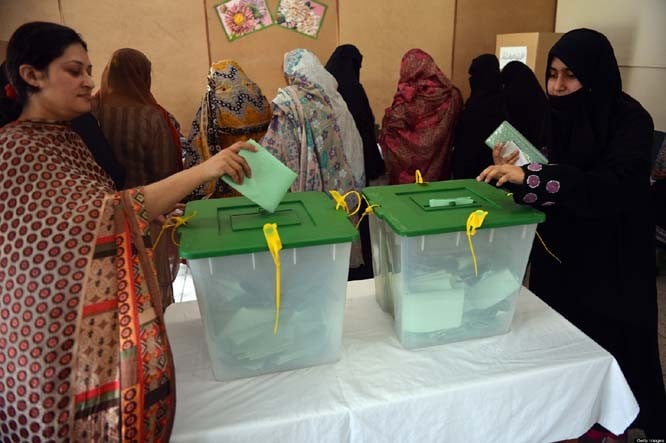
Before going to implement any new system, consultations should be held with the provinces to reach a political consensus on local government

The world over, local government system (LGS) always serves as a political nursery for creating and developing leadership cadre at grassroots level. Continuity of this system is essential for providing people opportunities for political participation, decision-making processes, developing and implementation of development agendas and accountability of duty-bearers at community level. This system can be effective in bringing the people at large and those living at margins as well in active citizenship role. In a broader spectrum, LGS is prerequisite for nurturing democratic norms in society.
But this does not sound true for Pakistan. Right from the beginning, this system remained inconsistent which led to serious doubts about its fate. That is why the society could not get the desired political and economic dividend out of it. One glaring example of it is LG elections in 2015 conducted on the orders of the Supreme Court which in itself speaks volumes of attitude of state institutions towards local bodies. Going by the history of implementation of this system it becomes evident that the sole purpose of it is to serve the vested interests of the military dictators rather to uphold the democratic culture.
Pakistan has introduced different versions of local bodies from Ayub Khan’s Basic Democracies 1959 to Local Government Act of 2013. But by and large all these forms were aimed at giving democratic face to unelected governments. A brief history of local bodies witnessed lack of political will, democratic deficit, bureaucratic hurdles and reluctance of MNAs/MPAs to hand over administrative and financial powers to local bodies. For these key reasons this system could not take roots in the country.
But the 18th Amendment was a key milestone for the protection and continuity of this system. It rightly raised the hopes for improving the situation in the future. Clause 140 A (1) of this amendment stipulated that "each province shall, by law, establish a local government system and devolve political, administrative and financial responsibility and authority to the elected representatives of local governments" and 140 A (2) states that "elections to the local government shall be held by the Election Commission of Pakistan". This amendment makes provinces responsible to establish local bodies.
Though this system remained in implementation in different forms in different provinces, it gained recognition as basic tier of government through discussion and debates in mainstream discourse. But continuity of this system in letter and spirit remained an uphill task. For example, the old local government system term expired on December 31, 2009. The new elections should have been held in 2010 but it could not happen because political parties in government in 2008-15 delayed the elections for different reasons. Apart from continuity of the system, drastic changes are needed in response to expectations of the people.
For efficient delivery of local government system following points may be suggested: First, there is a dire need to demarcate the roles of parliamentarians and elected councilors. Overlapping of these roles is a structural obstruction in the smooth functioning of the local bodies. MNAs/MPAs have nothing to do with development funds for roads, streets and drainage, etc., at local level. They are supposed to legislate to protect the basic human rights and ensure that final legislation approved by the Parliament is put into practice in true spirit, particularly rights of those who are excluded and vulnerable on gender, religious, linguistic and ethnic grounds. It is a good move by the PTI government to plan and execute all development schemes through local representatives according to the needs of the local population.
Second, capacity enhancement of local representatives in understanding the rules of business is another area which needs to be addressed by designing capacity-building initiatives by the government. Though different NGOs organise capacity-building workshops, keeping in view the numbers of representatives which run into thousands the capacity-building interventions are abysmally low. It is a bitter reality that in Pakistan only bureaucrats are considered eligible or most suitable for such events.
Third, neither the Constitution of Pakistan nor the Sindh Local Government Act, 2013 have any stipulated time for re-election of local bodies after completion of term or in case of early dissolution. That is why the Supreme Court has to intervene for the election of next term. There must be necessary legislation on timeframe at relevant assemblies for the continuity of the system without any gap.
Fourth, the current government of PTI intends to introduce new local bodies in provinces where PTI has its governments with direct elections for tehsil and district heads which run contrary to existing system in Punjab. Under the new system, PTI plans to elect city mayor directly by the people as is practice in London and Scandinavian countries. But the Sindh government has shown its reluctance to adopt the new system.
Similarly, some other provinces may have their reservations about the new system. Sanity demands that before going to implement any new system, consultations should be held with the provinces to reach a political consensus. Moreover, if the old system can be improved with little adjustments then there is no need to reinvent the wheel.